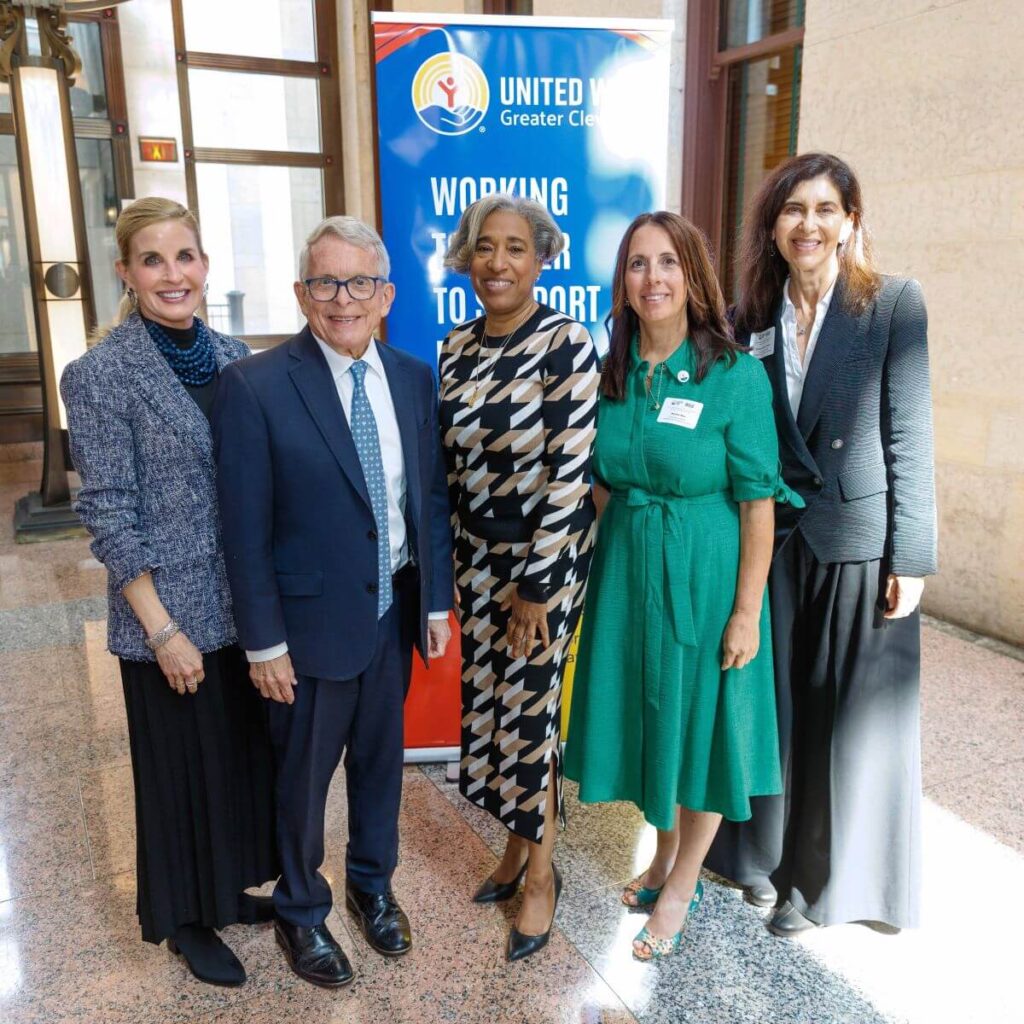
Ohio leaders came together at the United Way 2025 ALICE Policy Summit to tackle the barriers faced by working families.
From reducing the benefits cliff to expanding childcare and job supports, the message was clear: lasting stability takes shared accountability and collaboration across every sector.
Ohio leaders unite to support working families
Across Ohio, thousands of working families live on the edge of financial insecurity. They are the childcare providers, delivery drivers, home health aides, and retail workers who keep communities running. United Way identifies these workers as ALICE, short for Asset-Limited, Income-Constrained, and Employed.
At the 2025 United Way ALICE Policy Summit, leaders from across Ohio, including legislators, business executives, nonprofit partners, and United Way teams, came together around a shared goal: helping working families move from survival to stability.
United Way of Greater Cleveland President and CEO Sharon Sobol Jordan opened the event by grounding that mission in urgency. “We know that one unexpected bill or car repair can push a family deeper into crisis,” she said. “Too many working families are still living on the edge.”
Her remarks set the tone for a day centered on collaboration and long-term solutions to strengthen Ohio’s workforce and promote financial stability.
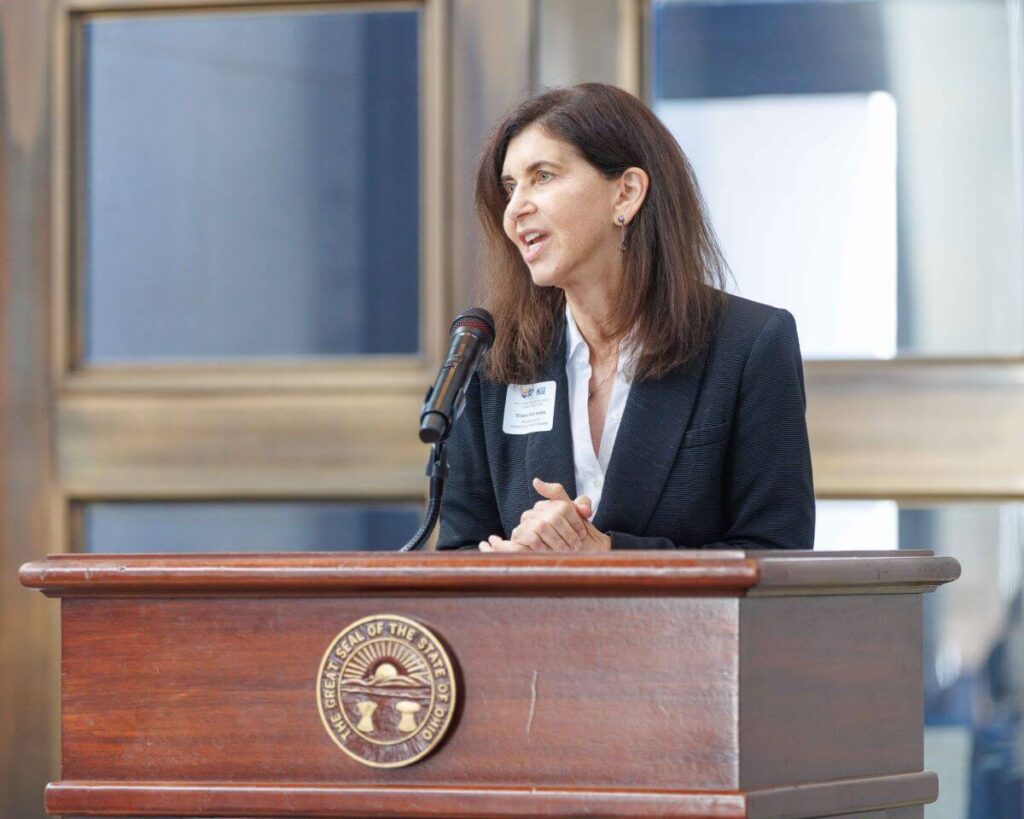
“Too many working families are still living on the edge.”
–Sharon Sobol Jordan,
President & CEO of United Way of Greater Cleveland
Connecting people to opportunity
A strong economy depends on strong workers, and that means ensuring Ohioans have the skills, resources, and support to succeed.
Aram Nerpouni of MAGNET, an organization that works with manufacturers across Northeast Ohio, described how employers are shifting from recruitment to retention and advancement. In a tight labor market, keeping good people matters as much as finding them.
MAGNET’s partnership with United Way of Greater Cleveland grantee Towards Employment on the ACCESS to Manufacturing Careers program trains residents, many rebuilding after incarceration or long-term unemployment, for manufacturing jobs that can grow into family-sustaining careers.
Employers are seeing results. Companies like Lincoln Electric now fund on-site job coaches to help employees stay on track during their first year of work, improving retention and skill development. Still, Nerpouni cautioned that Ohio’s workforce system must continue evolving to keep pace with industry needs and ensure that training programs align closely with what employers require.
Removing barriers to work and stability
Much of the day’s discussion focused on removing the barriers that keep working families from achieving financial stability, especially those created by the benefits cliff, where small increases in income trigger the loss of vital supports.
Governor Mike DeWine and Representative Dontavius Jarrells both emphasized that reducing the impact of these cliffs is key to helping families advance. DeWine highlighted the state’s expansion of SNAP eligibility to 200% of the federal poverty level, a change that allows more working families to accept raises without losing food assistance too quickly. “We want Ohioans to say yes to work,” he said, reinforcing the summit’s central message.
Jarrells described his bipartisan proposal, the HAND UP Act, which would phase out benefits gradually as wages rise. “We must both increase assets and reduce liabilities to help ALICE families escape instability,” he said.
From the administration, Ohio Department of Job and Family Services Director Matt Damschroder shared results from the state’s Benefits Bridge initiative, which helps families take raises or promotions without losing crucial support overnight. Participants in the pilot counties are already showing measurable gains in self-sufficiency.
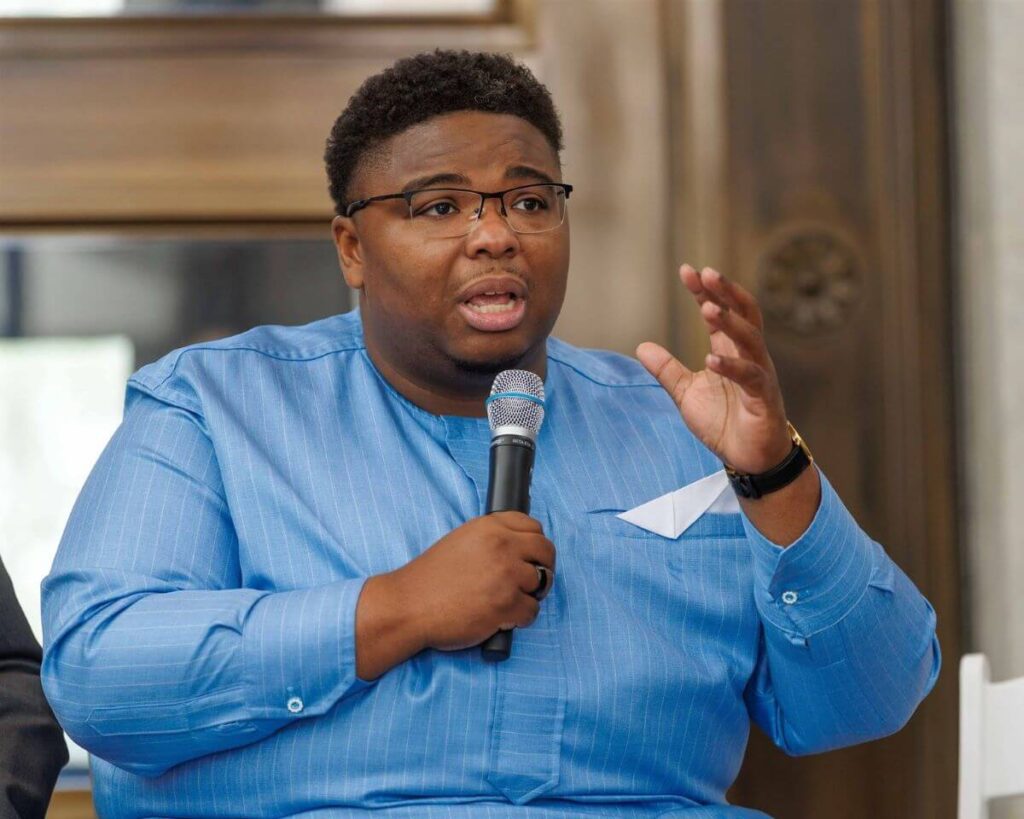
“We must both increase assets and reduce liabilities to help ALICE families escape instability.”
–Representative Dontavius Jarrells
State leaders agreed that policy alone is not enough. Senator Michele Reynolds discussed complementary efforts, including childcare cost-sharing programs, workforce housing incentives, and property tax relief for seniors, all designed to help Ohioans build long-term stability. Representative Dani Isaacsohn added that durable policy solutions start with listening to those with lived experience.
James Tassie of the Ohio Department of Medicaid described how state-managed care plans are now required to partner with local nonprofits, including United Ways, to address everyday barriers that affect health and employment, such as housing, food insecurity, and transportation. Each plan must reinvest part of its profits into these community partnerships, ensuring that resources generated within the healthcare system strengthen the local supports that help families stay healthy, employed, and financially stable.
Employers leading change
Business and nonprofit leaders alike emphasized that employers play a critical role in helping workers maintain stability.
Andy Hardy of the Columbus Chamber of Commerce said, “Talent is the engine of business.” He described how companies are expanding their talent pipelines, hiring from re-entry programs, supporting older workers, and creating inclusive workplaces that promote retention.
Vanessa Whiting, Board Chair of United Way of Greater Cleveland and President of A.E.S. Management Corp., shared how her company helps employees avoid financial setbacks through car repair assistance, transportation stipends, and flexible scheduling. She also advocates for state policy changes to smooth the benefits cliff, noting that promotions should not punish workers.
Similarly, Tracie Roberts, CEO of Montville Plastics and Rubber, spoke about supporting employees with financial counseling, on-site resource navigation, and flexible scheduling to help prevent life challenges from derailing employment. Her company’s approach mirrors United Way of Greater Cleveland’s Bridges@Work program, which partners with local employers to connect workers to community resources and strengthen retention.
Bridging the gaps in communities
Community-based organizations remain at the core of this work, filling the gaps that neither policy nor employers alone can address.
Wendy Pestrue, Executive Officer of United Way of Greater Toledo, described how United Way’s 2-1-1 helpline connects residents in Toledo not just to emergency aid but also to job and training opportunities. Each call, she noted, represents “someone taking a step toward stability.”
In rural areas, Representative Melanie Miller highlighted the creation of a nonprofit childcare center through employer partnerships in her district, a model helping parents stay employed while addressing a critical shortage of childcare. Martha Evans-Nau, Executive Director of United Way of Hardin County, added that raising awareness about local needs remains an uphill challenge, as many communities underestimate how many families struggle to make ends meet.
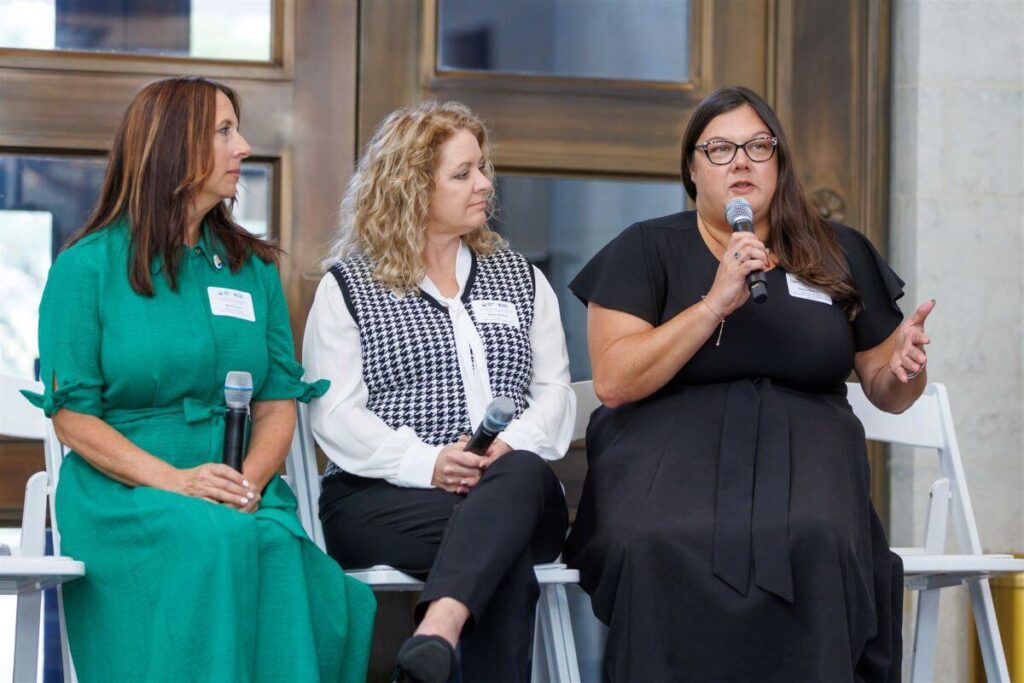
Ashley Washburn, Executive Director of Family Health Services of East Central Ohio, noted that healthcare affordability continues to be a major obstacle for ALICE families, and that cross-sector collaboration remains essential to reach those who fall just outside eligibility for public programs.
Shared accountability
Closing the day, Tracey Ballas, CEO of United Way of Muskingum, Perry, and Morgan Counties, summarized the summit’s key takeaway: no single sector can solve these issues alone. Legislators, businesses, nonprofits, and philanthropy must work together to create opportunities for families to move from surviving to thriving.
She shared a Call to Action for all sectors to help build stability for Ohio’s working families:
- We call on legislators to invest in childcare and address the benefits cliffs that hold families back.
- We ask businesses to partner with United Way and 211 to support employees with practical solutions to address barriers like transportation, childcare, and financial resources.
- And we urge nonprofits and philanthropy to target resources where ALICE households need them most, building coordinated, innovative services that lift families toward long-term stability.
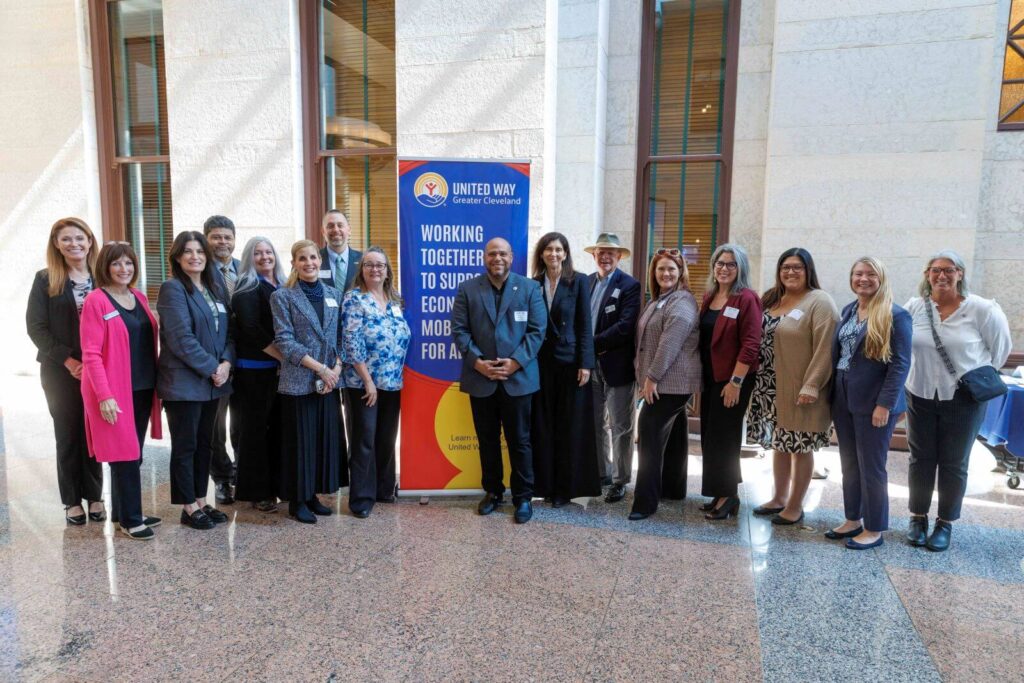
Together, these actions represent the spirit of the summit itself: a united effort to strengthen Ohio’s workforce and ensure every family has the chance to thrive.
This article was drafted with the assistance of generative AI and edited and fact-checked by the author.
